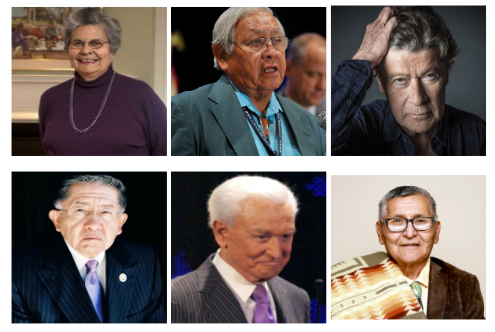
- Details
- By Levi Rickert
Year in Review - 2023. Today Native News Online remembers some of the beloved Indigenous people who walked during 2023.
Many were instrumental in fighting for and advancing Native rights, uplifting tribal arts and culture, and drawing crucial attention to important Native American issues.
We remember here some of those that Indian Country lost during the past year.
Ada Deer, first woman to serve as the head of the Bureau of Indian Affairs (BIA)
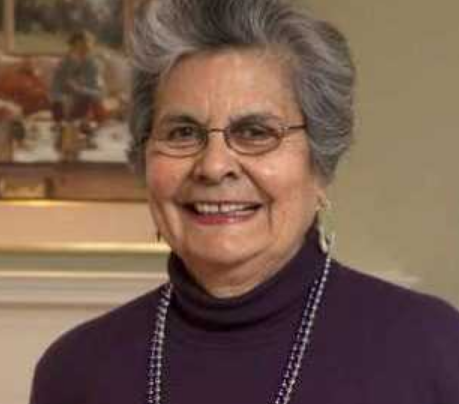
Ada Deer (Menominee) walked on August 15, 2023. She was the first woman to serve as the assistant secretary for Indian affairs at the U.S. Department of the Interior. Deer was 88.
Born in Keshena, Wisconsin, Deer grew up in poverty on the Menominee Indian Reservation. She was a Native American advocate, scholar and civil servant. She was the first Menominee to earn an undergraduate degree from the University of Wisconsin-Madison. In 1961, she was the first Native American to earn a master's degree from Columbia University.
Her work on behalf of the Menominee led to the Menominee Restoration Act of 1972, which officially returned the Menominee Reservation to federally recognized status. Because of this accomplishment, Deer became the first woman to chair the Menominee Tribe in Wisconsin.
Her political activism included running for Wisconsin secretary of state in 1978 and again in 1982. In 1992, she became the first Native American woman in Wisconsin to run for U.S. Congress. In 1993, Deer was tapped by President Bill Clinton to serve as Assistant Secretary of the Interior for Indian Affairs, which oversees the BIA. While in office from 1993-1997, she helped set federal policy for more than 550 federally recognized tribes. | Read more
Peterson Zah, served as chairman and president of the Navajo Nation
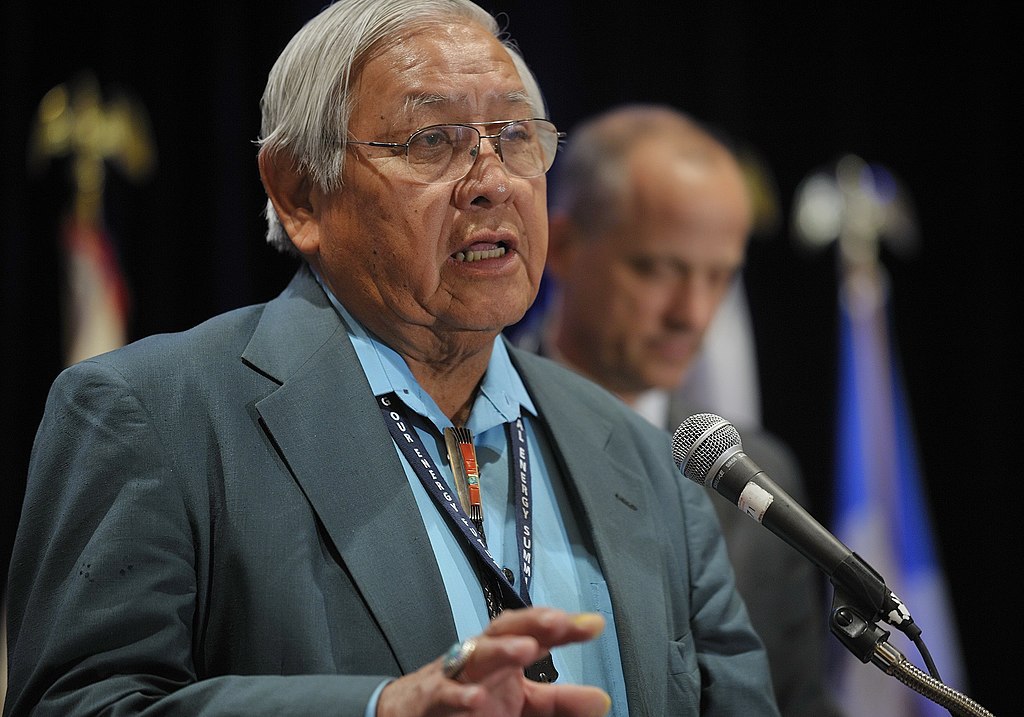
Peterson Zah (Navajo), who was the former chairman and president, died from a long struggle with cancer at the Tséhootsooí Medical Center in Fort Defiance, Arizona on the evening of March 7. Outside of Navajo Nation tribal politics, Zah made a strong mark in Native American education on the Navajo Nation and at Arizona State University (ASU). He was 85.
Zah served as chairman of the Navajo Nation Council from 1981 until 1987. After the Navajo Nation changed its government into a three-branch government in 1990, Zah won the presidency and was inaugurated on January 15, 1991 and served one term.
Born 1937, he was raised in Low Mountain, Arizona, in a remote part of the Navajo Indian Reservation. Zah was sent to boarding school at the Phoenix Indian School when he was 16 years old. He later enrolled at Phoenix Community College and then Arizona State University, where he received his bachelor’s degree in education. He returned to the reservation where he was a vocational educator, teaching the carpentry trade to adults before he entered Navajo Nation politics. | Read more.
Robbie Robertson, muscian, songwriter
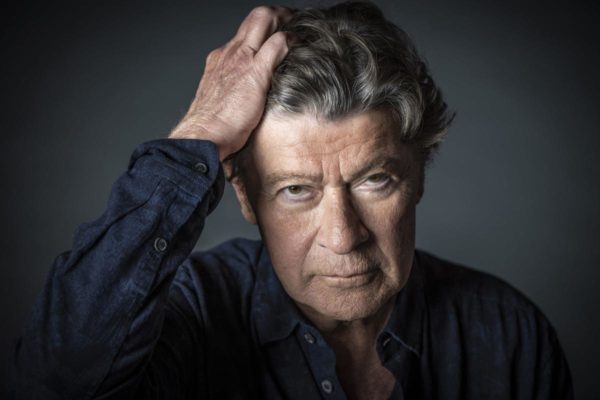
Robbie Robertson (Mohawk/Cayuga) walked on last week after a long illness at the age of 80. His manager of three decades, Jared Levine, said Robertson was surrounded by his family as he moved to the spirit world.
He was born Jaime Royal Robertson on July 5, 1943 to Rosemarie Dolly Chryler, a Cayuga and Mohawk woman. For the first six years of his life, Robertson, an only child, grew up on the Six Nations Reserve, an hour’s drive from Toronto. He often said later in life that when he was a kid, everyone he knew on the reserve played an instrument. “All my cousins, my uncles,” he said. “And I thought, I’ve got to do this.”
In his teens, his mother told him that James Robertson, the man she had married while pregnant, was not his biological father. His natural father was a Jewish man named Alexander Klegerman, who died in a highway accident before he was born. | Read more
Ernest Sickey, former Chairman of the Coushatta Tribe of Louisiana
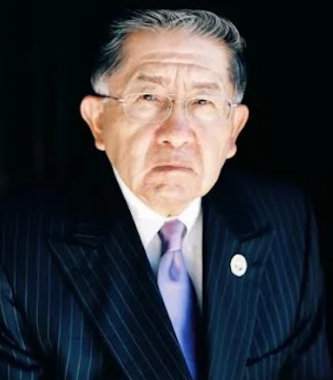
Ernest Sickey, a former Chairman of the Coushatta Tribe of Louisiana, and prominent Indian-affairs advocate, passed away peacefully on May 17, 2023, at the age of 80.
Sickey was a visionary who desired to bring the Coushatta Tribe out of obscurity. His desire to see the tribe regain federal recognition began in 1965, when he got a small group of tribal members to organize the Coushatta Indians of Allen Parish. The group established a trading post to sell traditional pine needle baskets to raise money for human services programs.
In 1970, Sickey led a successful effort to get the Indian Health Service to provide medical services for the Coushatta people. By 1972, Sickey led an effort that helped the Coushatta earn state-recognition as a tribe in the Louisiana State legislature. In 1973, the tribe gained federal recognition. | Read more
Bob Barker, televison show host
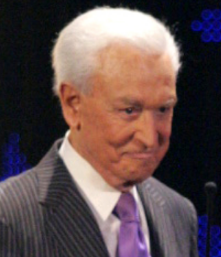
Bob Barker, best known for being the longtime host of “The Price is Right,” walked on at his Hollywood Woods home on Saturday of natural causes. Barker was less known for his Native American roots. Barker was 99.
He was born Robert Willam Barker in 1923 in Darrington, Washington. His father, Byron John Barker, was one-quarter Sioux, which made him one-eighth.
“I always bragged about being part Indian because they are a people to be proud of. And the Sioux were the greatest warriors of them all,” Barker told the Associated Press in 1962 in an interview. | Read more
Ben Shelly, former president of the Navajo Nation
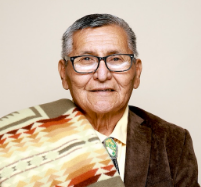
Former Navajo Nation President Ben Shelly passed away on March 22, 2023 from a long- term illness. President Shelly was 75.
Shelly served as an elected official to the Navajo Nation in several capacities, including serving on the Navajo Nation Council as vice president and president from 2011—2015.
Prior to being president of the Navajo Nation, Shelly served as a member of the Navajo Nation Council from 1991 to 2007, representing the community of Thoreau, New Mexico, before being elected as Vice President of the Navajo Nation from 2007 to 2011 and eventually becoming the president from 2011 to 2015. He also served as County Commissioner for McKinley County for eight years. | Read more
More Stories Like This
Native News Weekly (August 25, 2024): D.C. BriefsCheyenne River Youth Project to Celebrate Women’s Strength at Barbie-Themed Passion for Fashion on March 14
Celebrating Native American Women
Native Bidaské: The Illusion of Freedom and the Myth of America 250, Leonard Peltier Speaks Out
Monday Morning (March 2, 2026): Articles You May Have Missed This Past Weekend
Help us defend tribal sovereignty.
At Native News Online, our mission is rooted in telling the stories that strengthen sovereignty and uplift Indigenous voices — not just at year’s end, but every single day.
Because of your generosity last year, we were able to keep our reporters on the ground in tribal communities, at national gatherings and in the halls of Congress — covering the issues that matter most to Indian Country: sovereignty, culture, education, health and economic opportunity.
That support sustained us through a tough year in 2025. Now, as we look to the year ahead, we need your help right now to ensure warrior journalism remains strong — reporting that defends tribal sovereignty, amplifies Native truth, and holds power accountable.
 The stakes couldn't be higher. Your support keeps Native voices heard, Native stories told and Native sovereignty defended.
The stakes couldn't be higher. Your support keeps Native voices heard, Native stories told and Native sovereignty defended.
Stand with Warrior Journalism today.
Levi Rickert (Potawatomi), Editor & Publisher

